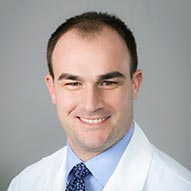Plano
469-303-3000
Fax: 469-303-4520
Frisco
469-303-3000
Fax: 469-303-4520
Prosper
469-303-3000
Fax: 469-303-4520
Request an Appointment with codes: Andrews Institute (Sports Medicine)
At Children’s Health Andrews Institute for Orthopaedics & Sports Medicine, our dedicated team has deep experience caring for children with congenital scoliosis. We offer advanced diagnostic tools and low-dose X-rays so we can safely monitor your child’s spine.
For children who need surgery to straighten their spine, we offer the most advanced surgical care, such as MAGEC growing rods. You can rely on us to help your child grow up healthy and strong.
469-303-3000
Fax: 469-303-4520
469-303-3000
Fax: 469-303-4520
469-303-3000
Fax: 469-303-4520
Request an Appointment with codes: Andrews Institute (Sports Medicine)
Scoliosis is a condition where the spine curves to the left or right. When a baby is born with a curved spine. it may be due to congenital scoliosis. While a child has this condition, it may not be noticeable for a few months or years after they are born.
Congenital scoliosis is less common than other types of scoliosis, such as idiopathic adolescent scoliosis that begin when your child is older. Overall, only one in 10,000 babies will develop congenital scoliosis.
Children with congenital scoliosis can experience complications like thoracic insufficiency syndrome (TIS). Children with TIS don’t have enough space in their chest for their heart and lungs to grow. Proper treatment can prevent these complications.
Your child’s pediatrician may diagnose them with scoliosis after a physical exam. Your child will then need an X-ray to determine how big the curve is and if it’s caused by missing or extra vertebrae. Your child may also need an MRI to make sure their spinal cord (the nerves inside the spine bones) have developed properly.
In rare cases, babies with congenital scoliosis have congenital abnormalities in their heart, kidneys or lungs. At Children’s Health, we can connect your family with a team of specialists to test for these issues as well.
Babies develop pediatric congenital scoliosis when they’re growing in the womb. They may have a missing vertebra, two or more vertebrae that are fused together or vertebrae that didn’t form completely.
In most cases, it’s not clear why the vertebrae don’t form correctly. However, studies show that if a mother has diabetes during pregnancy or uses alcohol during pregnancy, their babies may be at a higher risk of congenital scoliosis.
Some children won’t need any treatment for their congenital scoliosis, but they are at a high risk of needing surgical care. Your child’s spine specialist will use X-rays to monitor their spine as they grow and determine if they need treatment. At Children’s Health, we use an EOS low-dose X-ray machine. This machine makes your child’s treatment safer by reducing their exposure to radiation.
If your child’s curve doesn’t get better on its own, they will need surgery to straighten the curve. We offer surgical treatment options such as:
Our team of orthopedic doctors, surgeons and nurses are experts in children’s spinal issues.




While you can’t always prevent congenital scoliosis, you can reduce your child’s risk for this condition by avoiding alcohol during pregnancy and keeping conditions like diabetes well managed.
Children with mild to moderate curves will have no activity limits. However, children with rods or hardware in place may not be able to play high impact sports like football or gymnastics. Your child’s doctor will help you understand what activities are safe for them.
Only about 20% of children with congenital scoliosis will need surgery. Your child’s surgeon can help you understand what to expect and if your child will need more than one surgery.